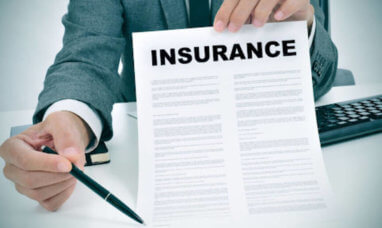Can You Get Car Insurance Without a Car?
Non-owner car insurance, sometimes called non-drivers insurance and non-owners insurance, offers liability coverage for people who don’t own their own vehicle, but occasionally drive someone else’s.
There are many pros and cons of liability car insurance. Liability insurance covers injuries and property damage that you cause to others due to a car accident. However, it doesn’t cover any damage to a car that you’ve borrowed or rented. Liability insurance also doesn’t pay for your own injuries if you’re at fault.
What Non-Owner Car Insurance Covers
A non-owner car insurance policy usually only provides the coverage that’s required in your state. However, most insurers offer the option to select limits that are higher than the minimums.
Aside from liability coverage, non-owner car insurance policies may also include:
-
-
- Uninsured/underinsured motorist protection, which covers you if you’re injured in an accident that’s caused by a driver that doesn’t have any or enough liability insurance
- Personal injury protection or medical payments protection, which pay for injuries sustained from an accident no matter who is found to be at fault
-
Be aware that non-owners insurance doesn’t include comprehensive or collision insurance. This type of coverage pays for any repairs needed to your vehicle, up to replacement.
Most non-owner auto insurance policies have no deductibles.
Who Needs Non-Owner Car Insurance?
People who don’t own a vehicle may want to consider investing in a non-owner insurance policy for any of the following situations.
You Need an SR-22 or FR-44 Form
Many states require these forms in order for your driver’s license to be reinstated after a serious conviction such as reckless driving or a DUI. Your insurance company will file these forms on your behalf as proof that you have the minimum insurance coverage that’s required by the state.
For answers about non owner auto insurance and SR-22, contact your insurance company.
Your State Requires Insurance To Get or Reinstate a Driver’s License
Whether you’re getting your license for the first time or restoring it after it was suspended, your state may require insurance as “proof of financial responsibility.”
You Use Car-Sharing Services Often
Car-sharing services like Turo and Zipcar typically require coverage for drivers, but usually you only need enough coverage to meet the state’s minimum requirements. However, if you cause a serious accident, costs may exceed the minimum limits. This means that you’d be responsible for paying them.
A non-owners policy is a great way to supplement limited coverage.
You Want to Maintain Continuous Coverage
Not having auto insurance makes you a risky driver in the eyes of insurance. This means that when it comes time to buy a vehicle, you’ll more than likely be stuck paying higher rates.
Instead of having a lapse in coverage, it may be best to buy inexpensive non-owner insurance, even if you’re only without a car for just a couple of weeks.
You Frequently Rent Cars
Non-owner insurance often costs less than liability coverage at the rental counter. If you’re a frequent renter, non-owner insurance can save you a good amount of money. It also provides peace of mind if you’re worried about being involved in a rental car accident.
But be aware that non-owner insurance doesn’t cover damage to the rental.
You Often Borrow Other People’s Cars
Normally the car owner’s insurance pays out for an accident. But in the event that costs exceed the liability limits, you’ll have to pay the remainder. Consider this scenario.
You caused an accident while driving a family member’s car. The other driver needs $40,000 worth of medical care. The family member who loaned you the car only has $30,000 of bodily injury liability coverage. This means that you’d be on the hook to pay the remaining $10,000.
But with a non-owner policy, that expense will likely be covered.
Who Shouldn’t Buy Non-Owner Car Insurance
Is it always worth it to insure a car not owned by me? Not necessarily. Here are some scenarios where a non-owners insurance policy isn’t the best option.
You Usually Borrow a Car From Someone You Live With
If the vehicle you drive the most belongs to someone you live with, you should be listed as a coverage driver on their car insurance policy. This means that you don’t need a non-owner insurance policy of your own.
Depending on where you live and the insurance company, coverage may be denied if every driving-age member of the household isn’t on the policy.
You Rarely Drive
For people who drive a few times a month or less, non-owner car insurance may not be worth the cost. It may be best to rely on your friend’s insurance policy or to buy insurance at the rental counter in the event that the worst happens.
Of course, before getting behind the wheel, double-check to ensure that you’re covered.
Where to Buy Non-Owner Car Insurance
To get a quote, you’ll need to contact an insurance agent or a company. Many insurers don’t provide non-owner car insurance quotes online. Other companies, like Progressive, only provide coverage to existing customers.
The best thing to do is to call around, get quotes, and then compare numbers.
How Much is Non-Owner Car Insurance?
Typically, a non-owner car insurance policy is less expensive than what you’d pay for the same amount of liability coverage for a car that you own. However, if you need the insurance company to file an SR-22 or FR-44, costs are likely to be high for that policy.
Coverage costs are dependent on your age, driving record, how often you’ll be driving, in addition to other variables.
Frequently Asked Questions
Can I Insure a Car I Don’t Own?
No, insurance companies generally don’t allow you to insure a car that belongs to someone else. However, with a non-owner policy, you can insure yourself. This type of policy offers liability insurance to cover damage that you may cause to someone else while driving a car that belongs to someone else.
What’s the Difference Between Insurable and Uninsurable Risk?
Insurable risks are those where an insurer can accept responsibility for possible losses. An uninsurable risk is a risk that has an unknowable or unacceptable risk of loss.
Do Insurance Companies Go After Uninsured Drivers?
If you don’t have collision/comprehensive or uninsured motorist coverage, your insurance won’t legally go after an uninsured driver, even if they’re at fault.
Featured Image: MegaPixl








